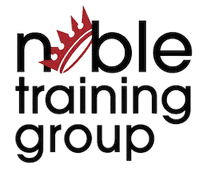
How do I become a process technician?
Certificate III in Resource Processing
- There are no mandated entry requirements.








Certificate III in Surface Extraction Operations
- There are no mandated entry requirements.








Certificate IV in Engineering
- There are no mandated entry requirements.








Certificate III in Process Plant Operations
- There are no mandated entry requirements.





Diploma of Process Plant Technology
- There are no mandated entry requirements.



Bachelor of Engineering Technology (Mechanical and Manufacturing)
- There are no mandated entry requirements.
 Chisholm Institute
Chisholm Institute
Bachelor of Engineering Technology (Mechatronics)
- There are no mandated entry requirements.
 Chisholm Institute
Chisholm Institute
Related occupations
Production Worker
A Production Worker assembles products, operates machinery, and conducts quality checks across various industries while ensuring safety and efficiency.
Plant Operator
A Plant Operator maintains equipment in power, chemical, or oil plants, monitoring operations and testing samples to ensure proper functionality.
Operations Officer
An Operations Officer coordinates activities, manages schedules, and monitors performance metrics to optimise workflows and enhance productivity.
Plant Engineer
A Plant Engineer oversees equipment and systems in a plant, ensuring operations run smoothly, conducting assessments, and implementing improvements.
Plant Mechanic
A Plant Mechanic repairs and maintains heavy machinery, conducts inspections, sources parts, and works in workshops or on-site.
Water Plant Operator Assistant
A Water Plant Operator Assistant helps treat and test water, maintains equipment, and performs various tasks, requiring teamwork and adherence to procedures.
Wastewater Plant Operator Assistant
A Wastewater Plant Operator Assistant aids in treating wastewater, conducts tests, and assists with equipment maintenance, requiring teamwork and attention to detail.
Water Plant Operator
A Water Plant Operator manages, treats, and tests water supplies, ensuring quality and safety while maintaining equipment and following procedures.
Wastewater Plant Operator
A Wastewater Plant Operator treats wastewater for various uses, ensuring compliance through testing, teamwork, and attention to detail.
Plant Technician
A Plant Technician operates equipment in manufacturing, maintains machinery, and ensures production runs smoothly while following procedures.
Plant Supervisor
A Plant Supervisor manages staff at a facility, ensuring targets are met, compliance is upheld, and training and schedules are organised.
Plant Manager
A Plant Manager oversees manufacturing operations, ensuring production meets schedules and quality standards while managing budgets and staff.
Mobile Plant Mechanic
A Mobile Plant Mechanic repairs and maintains heavy machinery on-site, requiring strong technical skills and problem-solving abilities.
Factory Worker
A Factory Worker assembles, mixes, or packages products, manages stock, follows procedures, and performs heavy lifting in a team environment.
Process Worker
A Process Worker aids in manufacturing by operating equipment, checking quality, and packaging items, while effectively communicating and following procedures.
Technical Officer
A Technical Officer installs and maintains manufacturing equipment, designs new systems, solves problems, and ensures efficient operations.
Polymer Technician
A Polymer Technician creates plastic and rubber products using machinery, requiring strong technical skills, safety focus, and teamwork.
Brake Press Operator
A Brake Press Operator shapes sheet metal using a brake press, working to specifications with precision, safety, and teamwork.
Common questions
How much does a Process Technician earn?
In Australia, a full time Process Technician generally earns $2,017 per week ($104,884 annual salary) before tax. This is a median figure for full-time employees and should be considered a guide only. As you gain more experience you can expect a potentially higher salary than people who are new to the industry.
What are the job opportunities for a Process Technician?
This industry is likely to experience moderate employment growth in coming years. There are currently 2,500 people working in this field in Australia and many of them specialise as a Process Technician. Process Technicians may find work across all regions of Australia.
Source: Australian Government Labour Market Insights
How do I become a Process Technician?
If you’re planning a career as a Process Technician, consider enrolling in a Certificate III in Resource Processing. This course will give you the skills to take on a range of production operator roles at metal or coal processing facilities. You’ll cover topics including pipeline pigging, transferring bulk fluids, managing start up and shut down of boilers, using automated plant and machinery and using instruments that emit ionising radiation.
Further reading


Choosing a security licence course in Australia: A step-by-step guide for jobseekers
10th November 2023)

